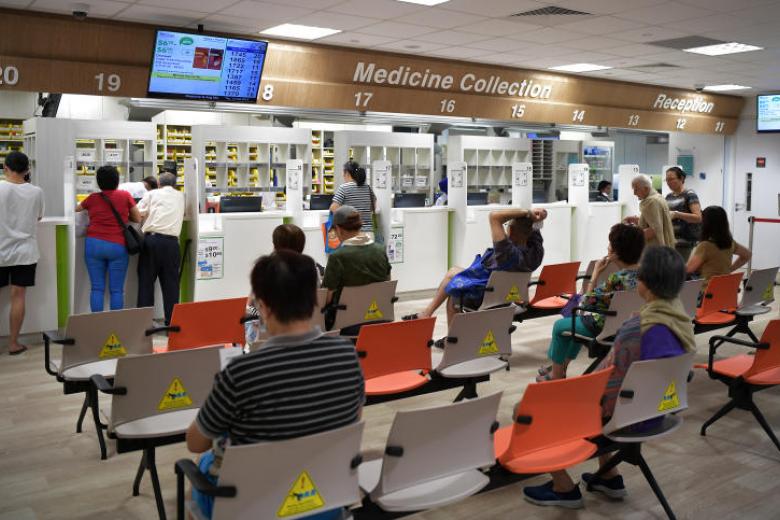SINGAPORE - The operations of essential services, like healthcare, will not be affected by cuts in the foreign worker quotas in the service sector, Minister of State for Manpower Zaqy Mohamad said in Parliament on Wednesday (Feb 27).
Healthcare providers will be given "manpower flexibilities" so that their day-to-day operations will not be affected, said Mr Zaqy.
The lower quota, which sets the proportion of foreigners on work permit or S Pass that a company can employ, will take place in 2020 and 2021 and has generated controversy, with several MPs questioning the decision.
Ms Joan Pereira (Tanjong Pagar GRC) said on Wednesday that she felt uncertain about the cuts, as they would impact the labour-intensive caregiving sector.
"These manpower reductions will have a major impact on our elderly - the very group of Pioneer Generation and the Merdeka Generation seniors whom we want to help age with dignity," said Ms Pereira, who called for a review of the foreign worker quota policy.
Ms Lee Bee Wah (Nee Soon GRC) suggested that the policy kick in for new workers only, and to allow businesses to retain foreign workers who are already employed, as they have gained experience and skills with their companies.
"They have invested a lot in training of their current workers and it would be a waste to send them back," said Ms Lee.
On Tuesday (Feb 26), Nominated MP Douglas Foo urged the Government to be more flexible in implementing the cuts by considering the needs of individual businesses in the services industry, which will face higher labour costs as a result of the move.
In response, Mr Zaqy said the Government can consider each company's restructuring plans and provide transitional manpower support to help them cope with the changes.
"We will work closely with the industry, to support businesses in developing more efficient techniques and service models, so that they can grow and transform in a tight labour market," he added.
The Manpower and Health Ministries said, in a joint statement to The Straits Times last Friday, that they are in touch with healthcare providers and will spur the sector to improve productivity.
Since 2012, the Health Ministry has rolled out more than 250 productivity projects for about 70 public healthcare and community care organisations.
Mr Zaqy, explaining the rationale for the quota cuts, said the Government decided against raising worker levies, which would directly raise costs for companies that stick to their existing business models.
On the other hand, a lower dependency ratio ceiling would give companies a choice: either to hire more Singaporeans or transform their businesses into a leaner organisation.
Mr Zaqy said various government schemes are available for companies whichever option they pick, and the outcome must be a win-win for workers and employers.
He recognised that access to foreigners is crucial to help firms remain competitive, especially if they have experience in emerging growth areas or skills that are in short supply in Singapore.
But he cautioned against becoming over-reliant on foreign manpower, which was why the Government had previously adjusted employment pass (EP) requirements and will continue doing so as Singaporean wages rise, he added.
In 2017, the EP qualifying salary was raised to keep pace with local wages, which led to a 3 per cent drop in the number of EP holders, with lower quality professionals leaving Singapore.
He stressed that job redesign was key in helping all industries, including the services sector, cope with manpower shortages and uplift the Singaporean workforce.
"In fact, the majority of locals are employed in the services sector, including in food services and retail jobs," he said.
"We should avoid reinforcing the view that these are jobs that only foreigners want to take up."


